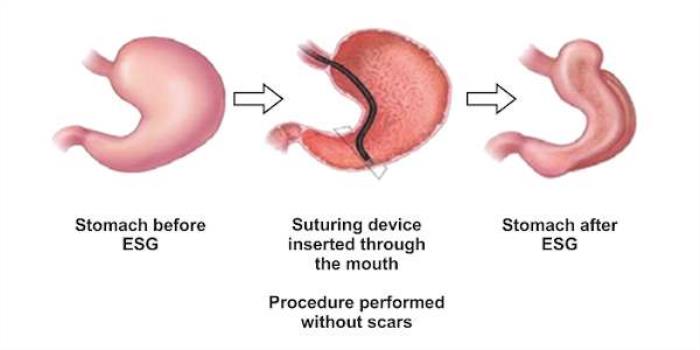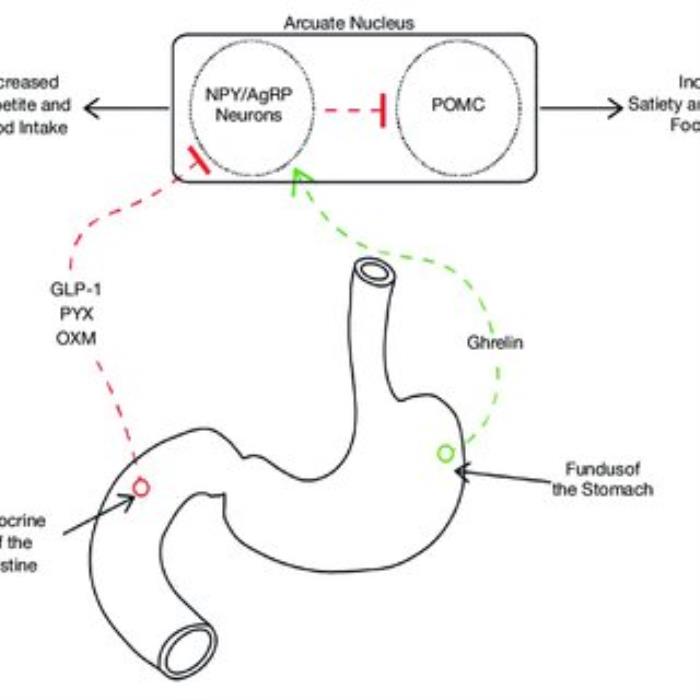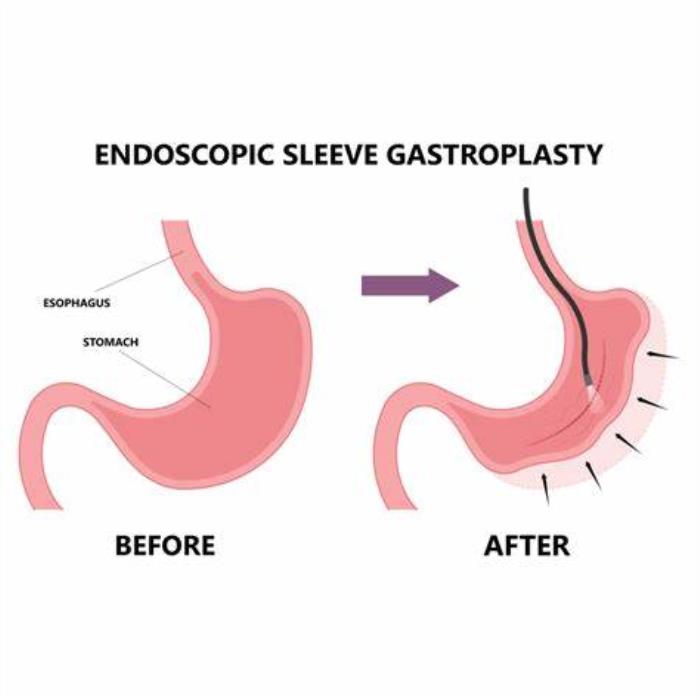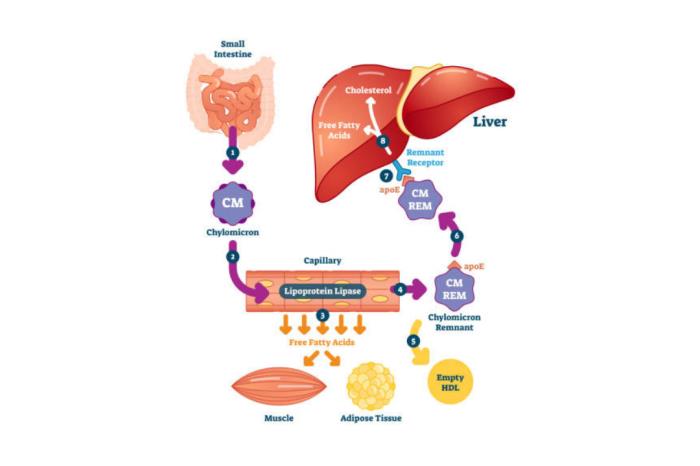Endoscopic Sleeve Gastroplasty (ESG) is a minimally invasive, non-surgical weight loss procedure that helps individuals achieve significant weight reduction by altering the stomach’s shape. During the procedure, a specialized endoscope is inserted through the mouth, and sutures are placed to reduce the size of the stomach. Unlike traditional bariatric surgery, ESG does not involve incisions or removal of any part of the stomach, making it a safer option with a quicker recovery time. ESG is suitable for individuals with moderate obesity who have not succeeded with conventional weight loss methods, offering an effective, less invasive alternative to surgical procedures.
Medical disclaimer: This content is for general awareness and does not replace a doctor’s consultation. For diagnosis or treatment decisions, consult a qualified specialist.
Understanding the Role of ESG in Weight Loss
The primary role of ESG in weight loss is to restrict the stomach's capacity, reducing the amount of food it can hold. This restriction promotes early satiety, meaning patients feel full after consuming smaller amounts of food. By combining this physical limitation with dietary and lifestyle changes, ESG helps individuals gradually lose weight over time. Additionally, ESG has shown to have fewer risks than traditional bariatric surgeries, while still providing a significant weight loss outcome, making it an attractive option for people seeking a less invasive intervention to combat obesity.
How ESG Alters the Structure of the Stomach
During an ESG procedure, the stomach is sutured into a sleeve-like shape, reducing its volume by about 70%. This structural change is achieved by placing several internal stitches along the stomach’s length, which compresses the stomach into a smaller, tubular form. The alteration in structure restricts the stomach’s ability to stretch and hold large quantities of food. By physically limiting food intake and slowing the digestive process, patients experience reduced hunger and prolonged feelings of fullness, which helps in reducing overall calorie consumption.

The Impact of ESG on Appetite Control
ESG significantly impacts appetite control by physically shrinking the stomach and reducing its ability to accommodate large meals. With a smaller stomach capacity, individuals feel satiated more quickly and tend to eat less at each meal. This reduction in food intake is further supported by ESG’s effect on slowing gastric emptying, which means food stays in the stomach longer, prolonging the sensation of fullness. These changes make it easier for patients to adhere to portion control, which is a critical factor in long-term weight loss success.
ESG and Changes in Gut Hormones: Ghrelin and Leptin
ESG influences weight loss not only by altering stomach structure but also by affecting key hormones involved in hunger regulation. Ghrelin, often referred to as the "hunger hormone," is typically reduced after ESG, leading to decreased appetite and cravings. At the same time, leptin, the hormone responsible for signaling satiety, may become more effective as patients lose weight, improving their body’s ability to regulate hunger and energy balance. These hormonal shifts help patients maintain lower caloric intake, enhancing the long-term success of the procedure in supporting sustainable weight loss.

How ESG Affects Insulin Sensitivity and Blood Sugar Levels
Weight loss resulting from ESG has a positive effect on insulin sensitivity and blood sugar regulation, particularly in individuals with obesity-related metabolic conditions like Type 2 diabetes. As patients lose weight, the reduction in body fat leads to improvements in insulin function, making the body more responsive to the hormone and better able to regulate blood glucose levels. ESG’s impact on appetite, calorie consumption, and gut hormones also supports the stabilization of blood sugar, reducing the risk of diabetes progression and helping some patients achieve better control over their glucose levels.
Metabolic Benefits of ESG: Accelerating Calorie Burn
Endoscopic sleeve gastroplasty (ESG) offers significant metabolic benefits by reducing stomach volume, leading to faster satiety and a reduction in caloric intake. This restrictive procedure also accelerates calorie burn as the body adapts to a smaller stomach capacity, facilitating weight loss and enhancing metabolism over time.

The Role of Gut Microbiota in Metabolism Post-ESG
After ESG, changes in the gut microbiota play a crucial role in enhancing metabolism. The reduced stomach size alters nutrient absorption, and this shift in gut bacteria can lead to improved insulin sensitivity, better digestion, and overall weight management, contributing to long-term metabolic health.
Hormonal Changes and Their Influence on Fat Storage
ESG triggers important hormonal changes, particularly affecting hormones like ghrelin, which regulates hunger. The reduction of ghrelin levels post-ESG leads to decreased appetite, and hormonal adjustments help prevent excessive fat storage, promoting healthier body composition.

ESG and the Regulation of Hunger and Fullness
One of the primary metabolic benefits of ESG is its influence on hunger and fullness signals. By decreasing the stomach’s capacity, ESG enhances the release of satiety hormones such as GLP-1 (glucagon-like peptide-1), which promote feelings of fullness after smaller meals, helping individuals maintain better control over food intake.
Long-Term Effects of ESG on Metabolic Rate
Although ESG primarily works through mechanical restriction, the long-term effects on metabolic rate are significant. Patients may experience a more efficient metabolism due to sustained weight loss and improved metabolic hormone regulation. These factors contribute to long-lasting metabolic improvements post-procedure.
How ESG Helps in Managing Obesity-Related Hormonal Imbalances
Obesity often leads to hormonal imbalances that exacerbate weight gain. ESG helps manage these imbalances by reducing adipose tissue (fat storage), which in turn lowers the production of inflammatory hormones like leptin and insulin resistance markers. This helps restore normal hormonal function, aiding in weight management.
Impact of ESG on Thyroid Function and Metabolism
Thyroid function, which directly influences metabolism, can be positively impacted by ESG. As patients lose weight, thyroid hormone levels often stabilize, leading to a more consistent metabolic rate. Additionally, weight loss post-ESG can help improve thyroid function in patients with obesity-related hypothyroidism.
Understanding the Reduction of Inflammatory Hormones After ESG
ESG also helps reduce the levels of pro-inflammatory hormones such as C-reactive protein (CRP) and interleukin-6 (IL-6), which are commonly elevated in obese individuals. The reduction in inflammation can lead to improved metabolic function and a decrease in chronic conditions associated with obesity, such as cardiovascular disease.
ESG vs. Surgical Weight Loss: Hormonal and Metabolic Differences
Compared to surgical weight loss procedures, ESG offers a less invasive option with similar hormonal and metabolic benefits. While both approaches impact gut hormones and metabolism, ESG may have fewer complications and a quicker recovery, making it an attractive alternative for patients seeking hormonal balance and metabolic improvements.
Patient Success Stories: Hormonal and Metabolic Improvements After ESG
Many patients report significant improvements in hormone regulation and metabolism following ESG. These success stories often highlight better blood sugar control, reduced hunger, and an overall increase in energy levels as their bodies adapt to the metabolic changes brought on by the procedure.
Monitoring Hormonal Changes After ESG: What to Expect
After ESG, it’s important for patients to regularly monitor hormonal changes with their healthcare provider. Regular check-ups help track improvements in insulin sensitivity, thyroid function, and hunger-related hormones to ensure that the procedure is delivering the expected metabolic benefits.
The Role of Diet and Exercise in Enhancing ESG’s Metabolic Effects
To maximize the metabolic benefits of ESG, patients should adopt a healthy diet rich in proteins, fiber, and essential nutrients while maintaining regular physical activity. Exercise further enhances calorie burn, helps maintain muscle mass, and supports long-term weight management.
Combining ESG with Medical Therapies for Hormonal Balance
For some patients, combining ESG with medical therapies such as hormone replacement or insulin sensitizers may enhance the procedure’s effects on hormonal balance. This multidisciplinary approach can help address any underlying metabolic issues that may impede the full benefits of ESG.
Conclusion: The Comprehensive Benefits of ESG on Metabolism and Hormones
ESG offers a comprehensive range of metabolic and hormonal benefits, from reducing hunger and improving satiety to managing insulin sensitivity and reducing inflammatory markers. With fewer complications and faster recovery than traditional bariatric surgeries, ESG is emerging as a promising option for patients seeking metabolic health improvements.
Exploring New Technologies in Endoscopic Sleeve Gastroplasty
Discover the latest technologies enhancing Endoscopic Sleeve Gastroplasty. This section highlights innovative tools and techniques that improve the effectiveness and safety of the procedure, paving the way for better outcomes in weight loss and patient satisfaction.
Impact of Endoscopic Sleeve Gastroplasty on Comorbid Conditions
Learn about the positive impact of Endoscopic Sleeve Gastroplasty on comorbid conditions associated with obesity. This section examines how the procedure can help alleviate health issues such as type 2 diabetes, hypertension, and sleep apnea, promoting a healthier lifestyle post-surgery.
Best Endoscopic Sleeve Gastroplasty in India
The Best Endoscopic Sleeve Gastroplasty in India is a non-surgical, minimally invasive weight loss procedure that reduces stomach size, helping patients achieve significant weight loss without the need for incisions.
Best ESG Hospitals in India
The Best ESG Hospitals in India are equipped with advanced technology and skilled endoscopic specialists, offering comprehensive care from initial consultation to post-procedure follow-up for effective weight management.
Best ESG Surgeons in India
The Best ESG Surgeons in India are highly trained in advanced endoscopic techniques, offering personalized care to help patients achieve their weight loss goals safely and effectively.
FAQ
How does endoscopic sleeve gastroplasty affect metabolism?
ESG reduces stomach size, leading to lower food intake, improved satiety, and faster calorie burn, which collectively boost metabolism.
What hormonal changes occur after ESG?
Key hormonal changes include a decrease in ghrelin (the hunger hormone) and an increase in GLP-1, which enhances feelings of fullness and supports weight loss.
How does ESG impact appetite and hunger hormones like ghrelin?
ESG reduces the production of ghrelin, leading to a decreased appetite and better regulation of hunger, helping patients maintain a lower caloric intake.
Can ESG help improve insulin sensitivity?
Yes, ESG can improve insulin sensitivity by reducing fat tissue and promoting healthier gut hormone levels, which helps in managing blood sugar levels.
What are the long-term metabolic benefits of ESG?
Long-term benefits include sustained weight loss, improved thyroid function, enhanced insulin sensitivity, and a more stable metabolic rate, contributing to better overall metabolic health.